And About That Grecian Temple on the Henry Hudson Parkway…
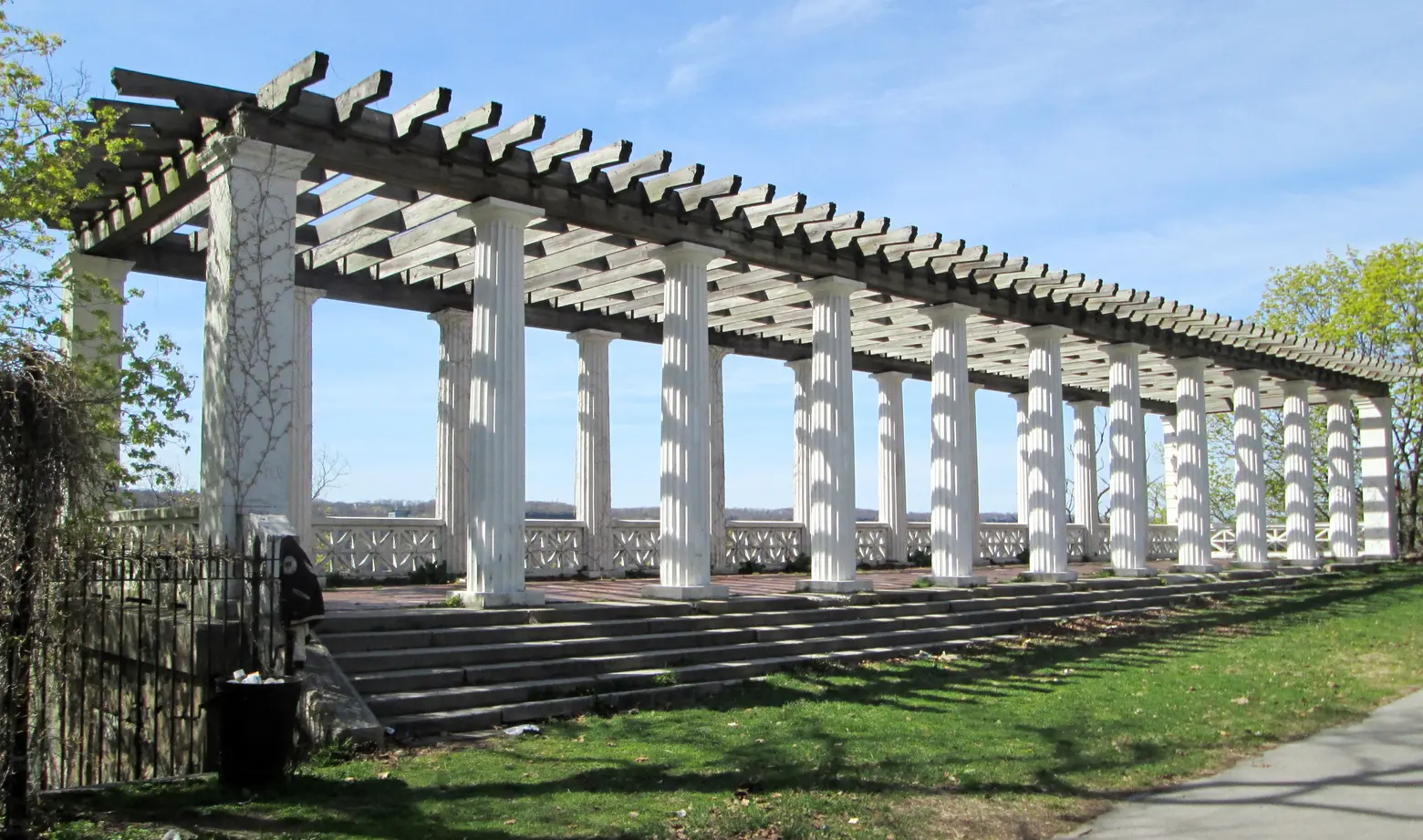
New York City is filled with an abundance of structural treasures that are hard to miss. From the Brooklyn Bridge to the Chrysler Building to the soon-to-be-opened Freedom Tower, there is no shortage of architectural eye candy vying for your attention.
Which means some pretty spectacular little gems get lost in the shuffle. Like the curious white, Doric-columned structure located off the Henry Hudson Parkway near West 190th Street. Part of Fort Washington Park, this scenic overlook perched over 100 feet above the Henry Hudson River is known as Inspiration Point – a perfect moniker given its breathtaking vistas of the river, George Washington Bridge, and the majestic Palisades in neighboring New Jersey.
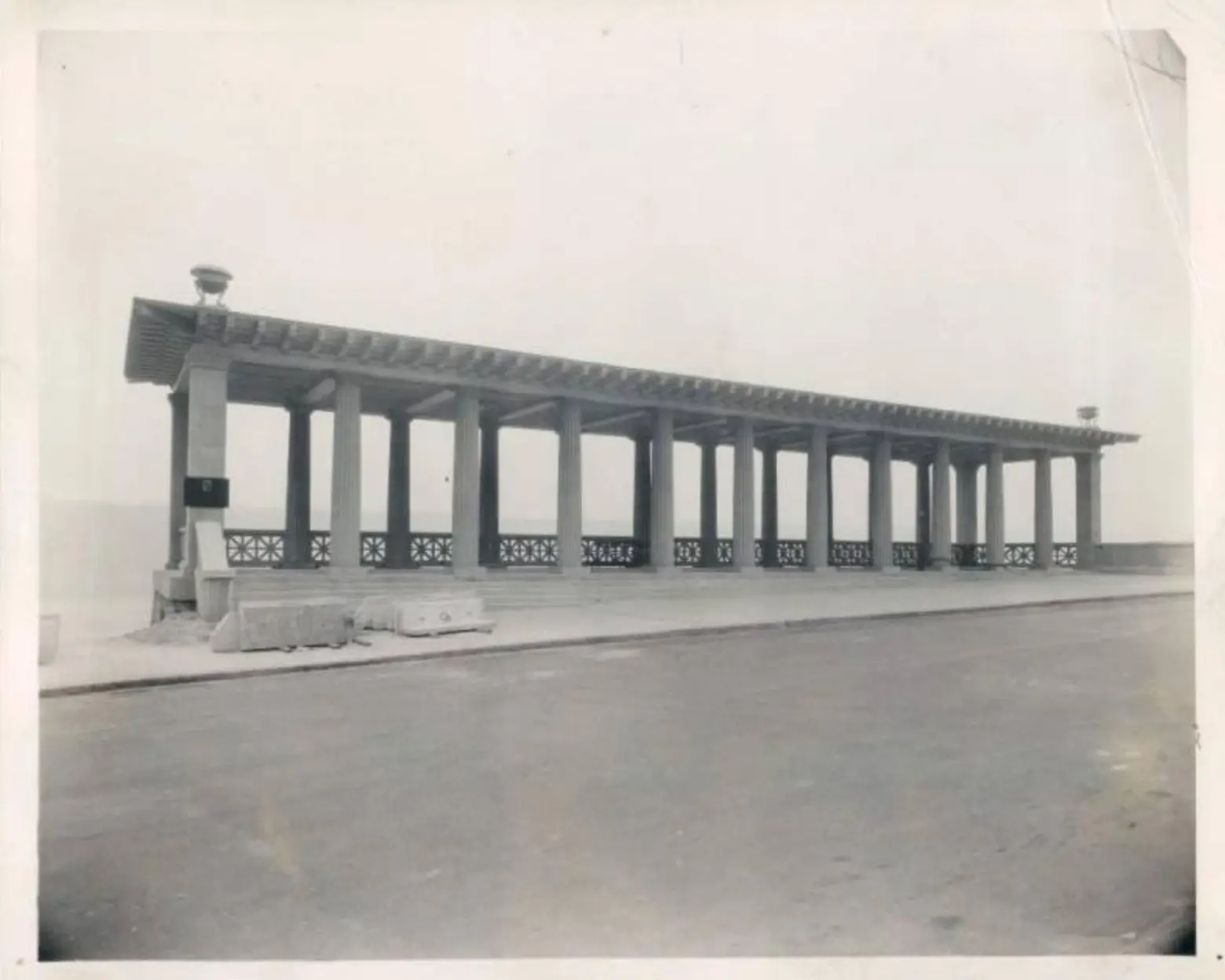 A photo of the temple in 1927
A photo of the temple in 1927
When the neoclassical sitting area was built in 1925, it greeted leisure drivers and other passersby as a space to find respite and enjoy unobstructed views of the surrounding area. Its trellised “roof’ also lent protection from the sun for those on foot.
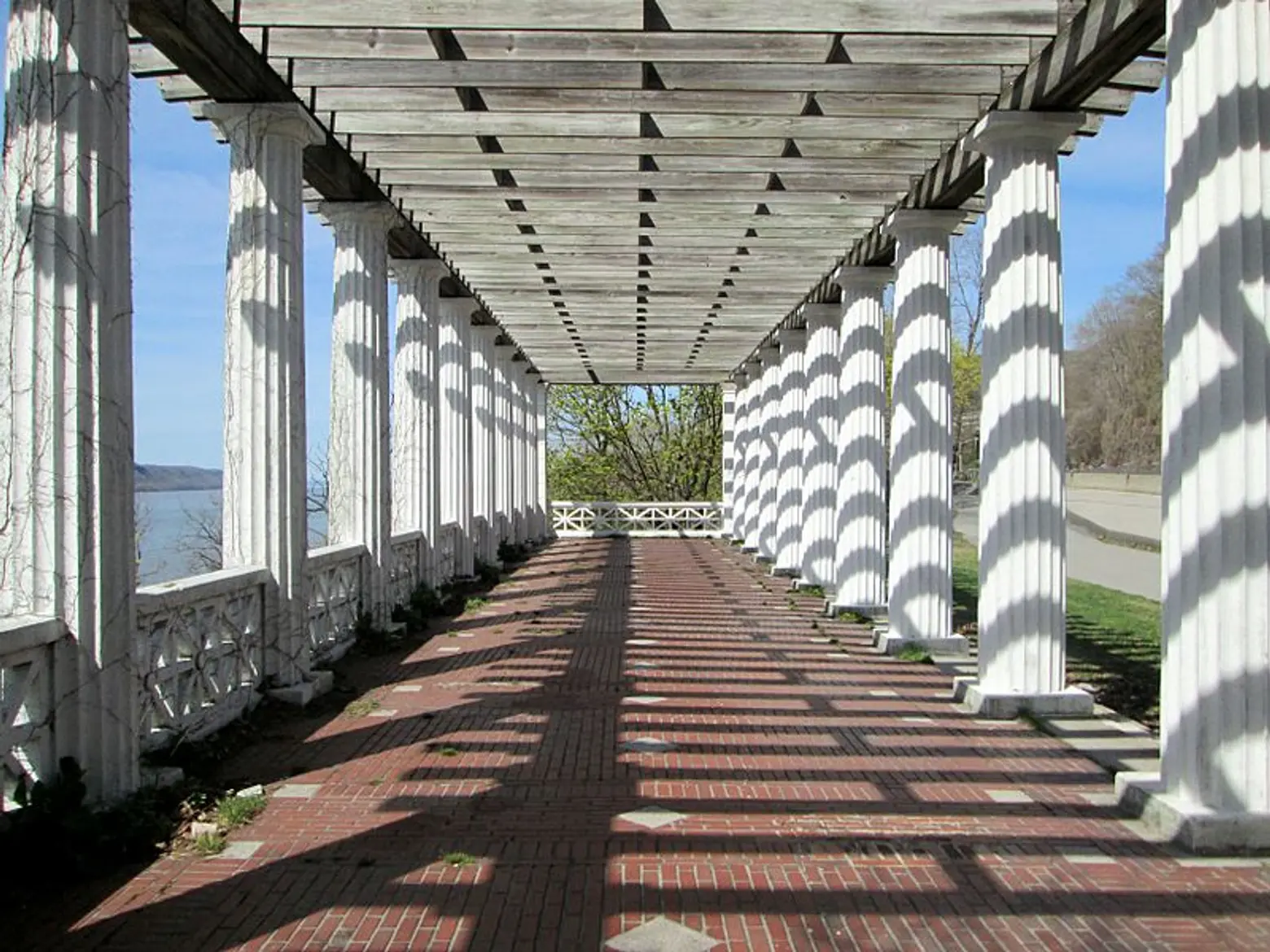
Today, you can get a quick glimpse as you drive northbound on the Henry Hudson Parkway. But if you want to get up close and personal you’ll have to don your walking shoes or favorite pedaled mode of transportation. Inspiration Point can only be accessed by bike or foot via the Hudson River Greenway, making a trip to this shady shelter good for both your body and your soul.
Images via WikiCommons
Get Inspired by NYC.
Leave a reply
Your email address will not be published.
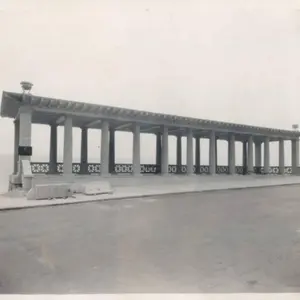
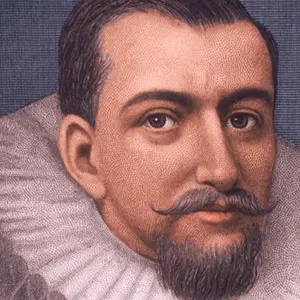
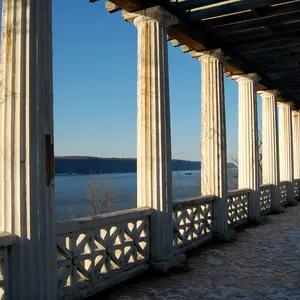
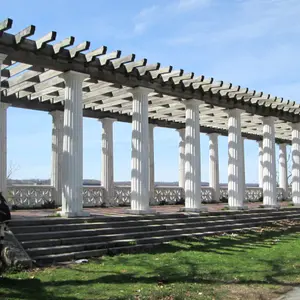
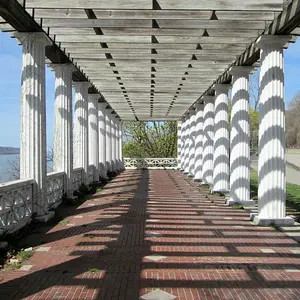
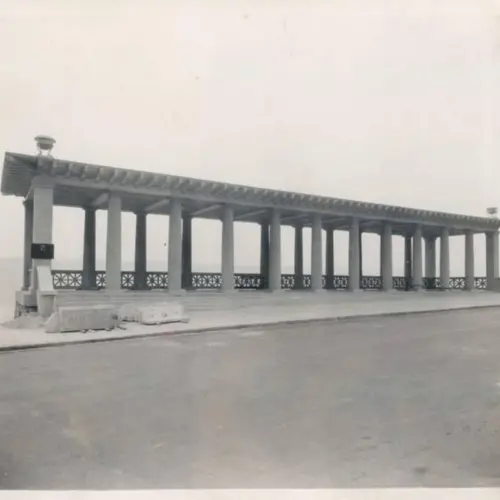
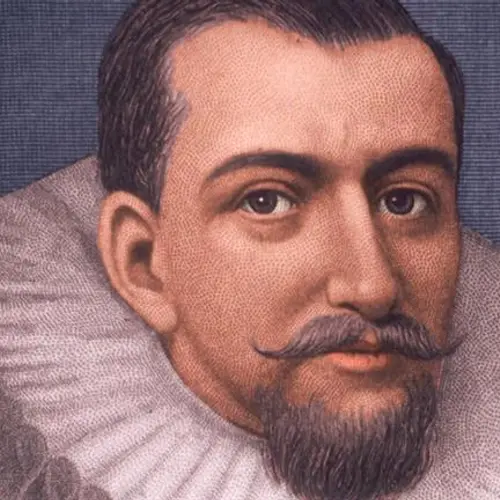
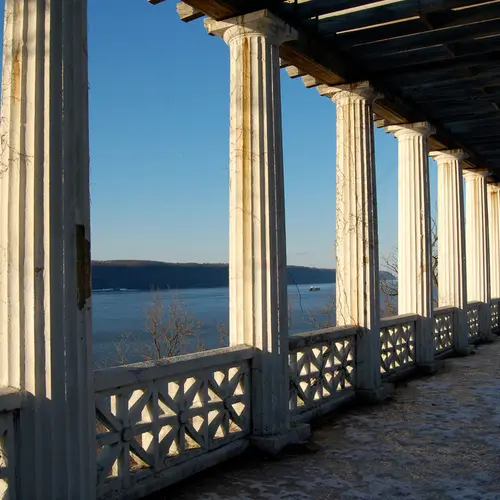
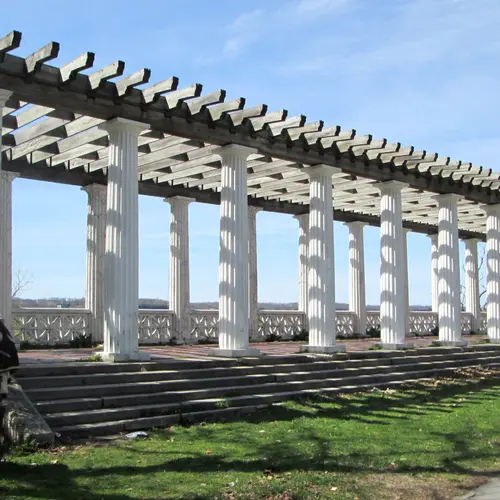
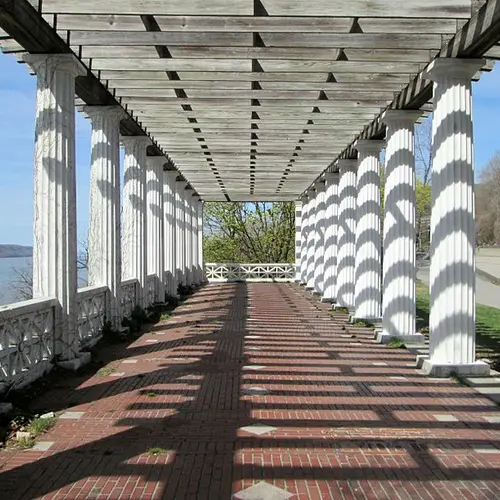
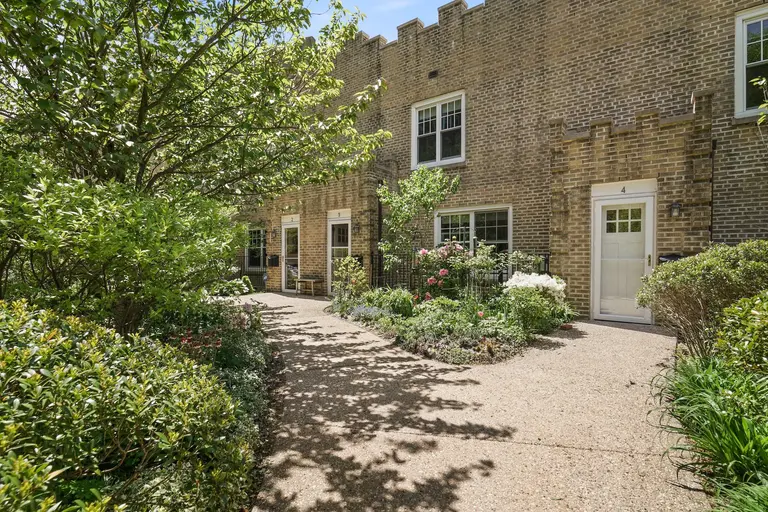
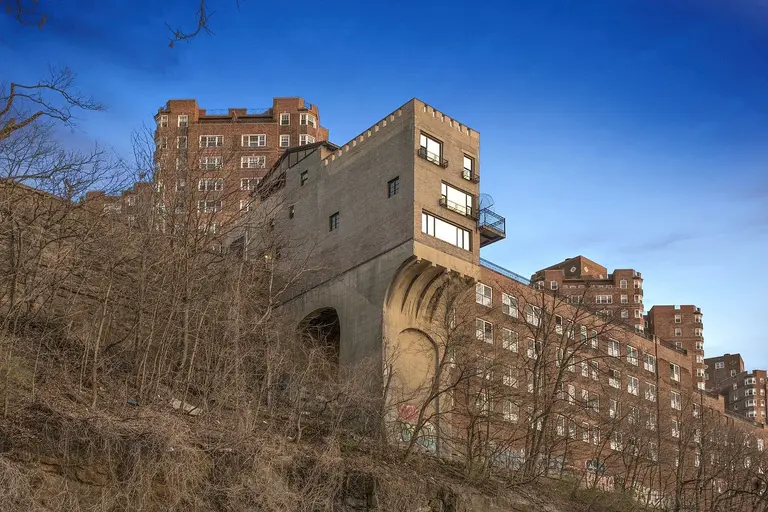

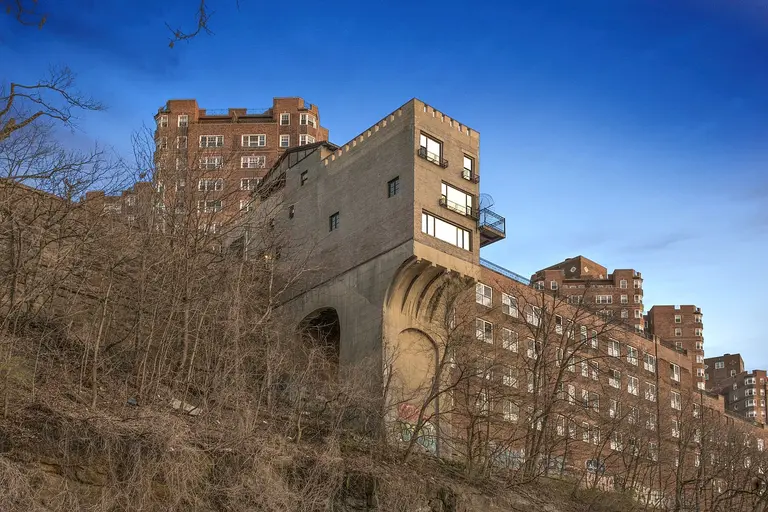








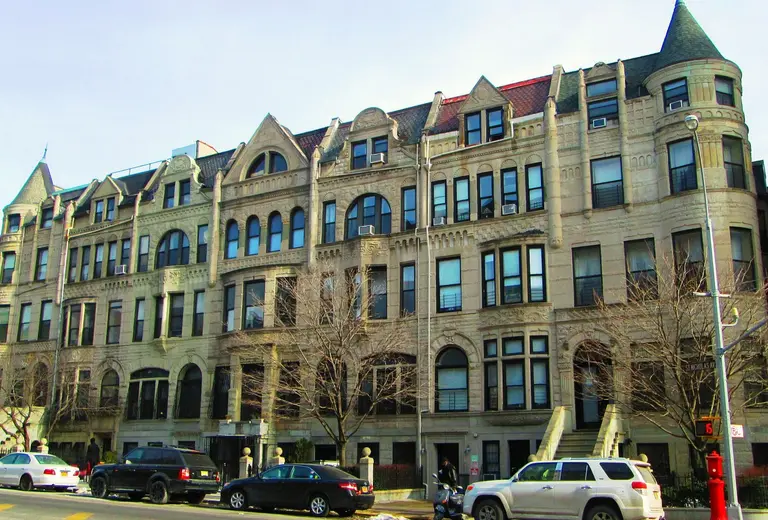



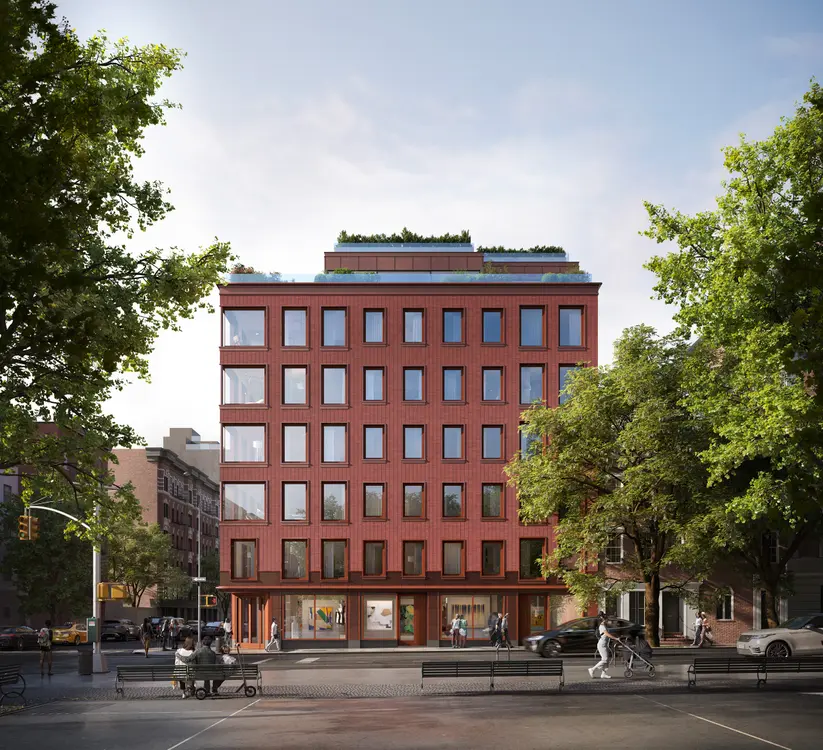









“When the neoclassical sitting area was built in 1925, the start of construction on the bridge names for our first president was still 30 years away and the view that greeted travelers extended unencumbered for miles.”
Something is incorrect here. The GWB was opened in 1931. I believe this temple was built earlier than 1925.
It absolutely must have been built before 1925. In the silent film ” His Picture in the Papers” Douglas Fairbanks is clearly being driven past these columns. The picture was made in 1916.